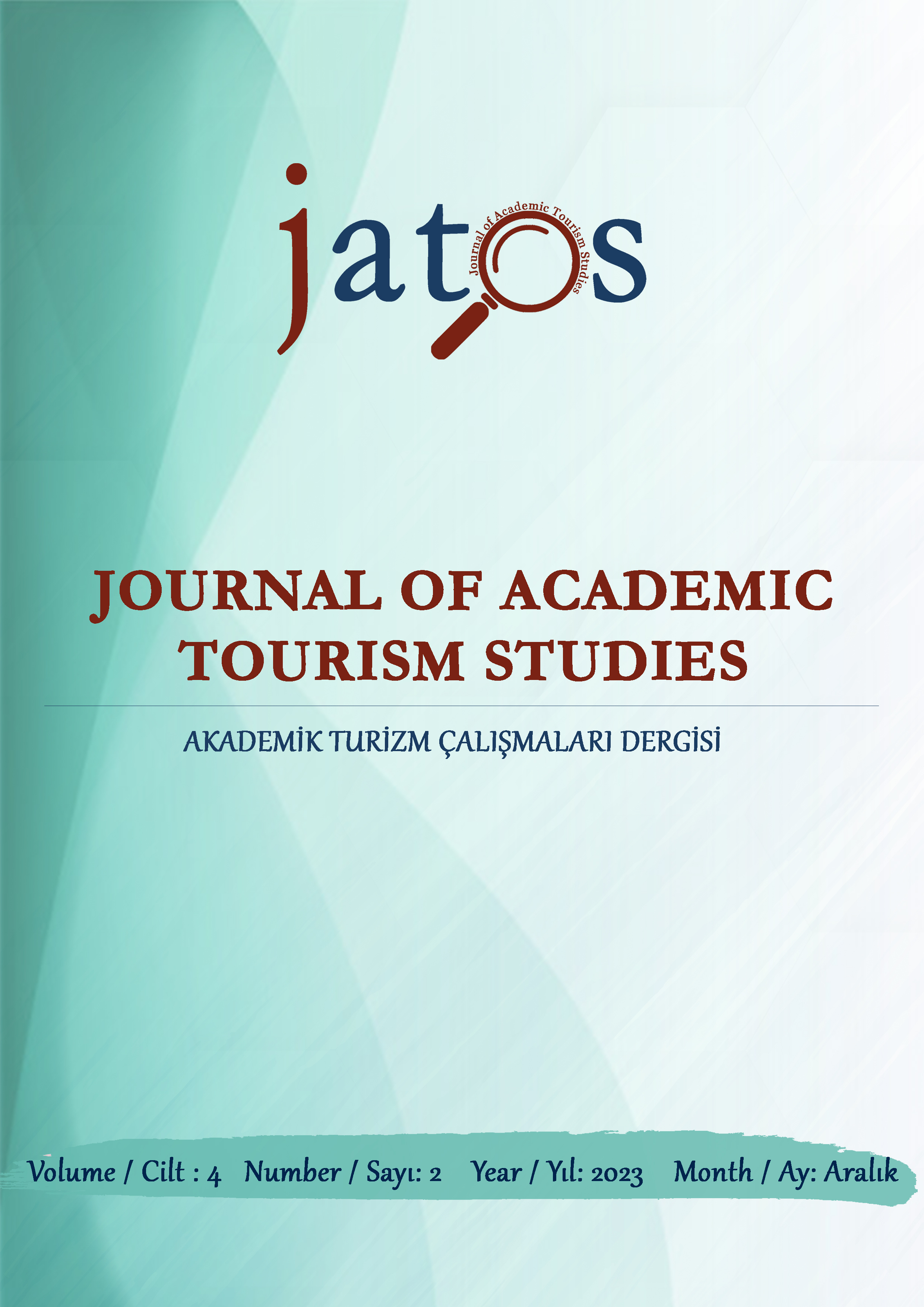Author :
Abstract
Bu çalışmada, turizm grubu öğretmenlerinin duygusal zeka düzeylerinin eleştirel düşünmeleri üzerinde herhangi bir etkisinin olup olmadığının ortaya çıkarılması amaçlanmaktadır. Bu amaç doğrultusunda, duygusal zekâ boyutlarının, eleştirel düşünme boyutları üzerindeki etkisinin saptanması, bu etkinin turizm öğretmenleri açısından günümüz eğitim sistemi içerisindeki öneminin belirlenmesi ve değerlendirilmesi hedeflenmektedir. Bu bağlamda, çalışmada nicel araştırma yöntemlerinden faydalanılarak anket tekniği uygulanmıştır. Çalışmanın evrenini Doğu ve Güneydoğu Anadolu Bölgeleri’nde görev yapan 245 turizm grubu öğretmeni (Konaklama Seyahat Hizmetleri ve Yiyecek İçecek) oluşturmaktadır. Uygulanan anket formu üç bölümden oluşmaktadır. Birinci bölümde, katılımcıların demografik özelliklerini, ikinci bölümde; duygusal zekâ düzeylerini ve üçüncü bölümde eleştirel düşünme düzeylerini ölçen ifadeler yer almaktadır. Araştırma sonucunda, eleştirel düşünme alt boyutlarının cinsiyet, medeni durum ve öğrenim durumu değişkenlerine göre farklılaşmadığı görülmüştür. Fakat çalışmada öğretmenlerin yaşlarının arttıkça eleştirel düşünme düzeylerinin azaldığı görülmüştür. Öğretmenlerin yaşları ilerledikçe, akıl yürütme, kanıt arama, gerçeği arama, açık fikirlilik ve sistematiklik boyutlarında eleştirel düşünme düzeyleri anlamlı bir şekilde azaldığı görülürken mesleki tecrübe değişkeninin akıl yürütme, kanıt arama ve gerçeği arama eleştirel düşünme alt boyutları düzeyinde anlamlı bir etkisinin olduğu görülmüştür. Yine araştırma sonucunda, duygusal zekanın; özbilinç, empati ve motivasyon alt boyutlarının kabul edilebilir ölçüde eleştirel düşünmeyi etkilediği fakat öz yönetim boyutunun eleştirel düşünme alt boyutları üzerinde bir etkisinin olmadığı ortaya çıkarılmıştır.
Keywords
Abstract
This study aims to reveal whether the emotional intelligence levels of tourism group teachers have any effect on their critical thinking. For this purpose, it is aimed to determine the effect of emotional intelligence dimensions on critical thinking dimensions and to determine and evaluate the importance of this effect in today's education system for tourism teachers. In this context, a survey technique was applied in the study using quantitative research methods. The population of the study consists of 245 tourism group teachers (Accommodation Travel Services and Food and Beverage) working in the Eastern and Southeastern Anatolia Regions. The applied survey form consists of three parts. In the first part, the demographic characteristics of the participants, in the second part; There are statements measuring emotional intelligence levels and critical thinking levels in the third section. As a result of the research, it was seen that critical thinking sub-dimensions did not differ according to gender, marital status and education level variables. However, it was observed in the study that as teachers' ages increased, their critical thinking levels decreased. As teachers get older, it has been observed that their critical thinking levels decrease significantly in the dimensions of reasoning, seeking evidence, seeking truth, open-mindedness and systematicity, while the professional experience variable has a significant effect on the level of critical thinking sub-dimensions of reasoning, seeking evidence and seeking truth. Again, as a result of the research, emotional intelligence; It was revealed that the self-awareness, empathy and motivation sub-dimensions affected critical thinking to an acceptable extent, but the self-management dimension had no effect on the critical thinking sub-dimensions.





